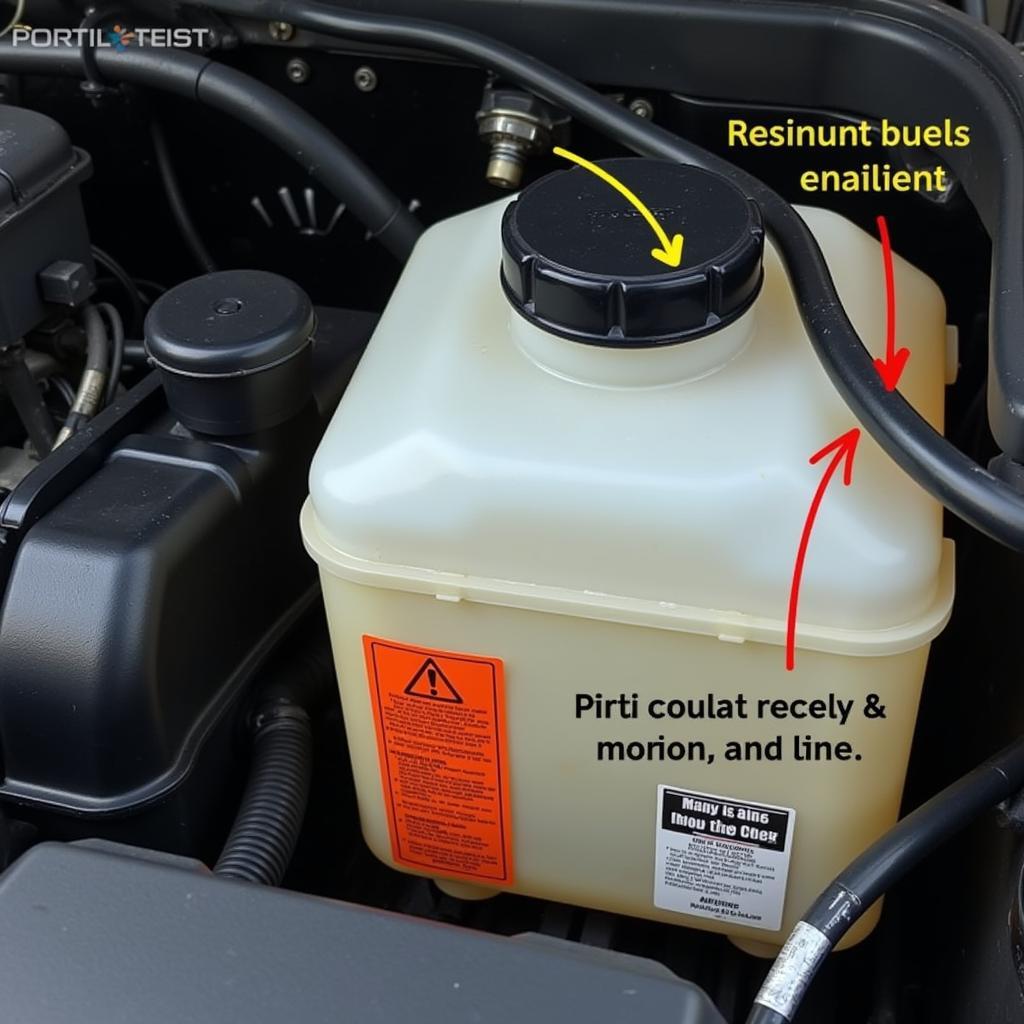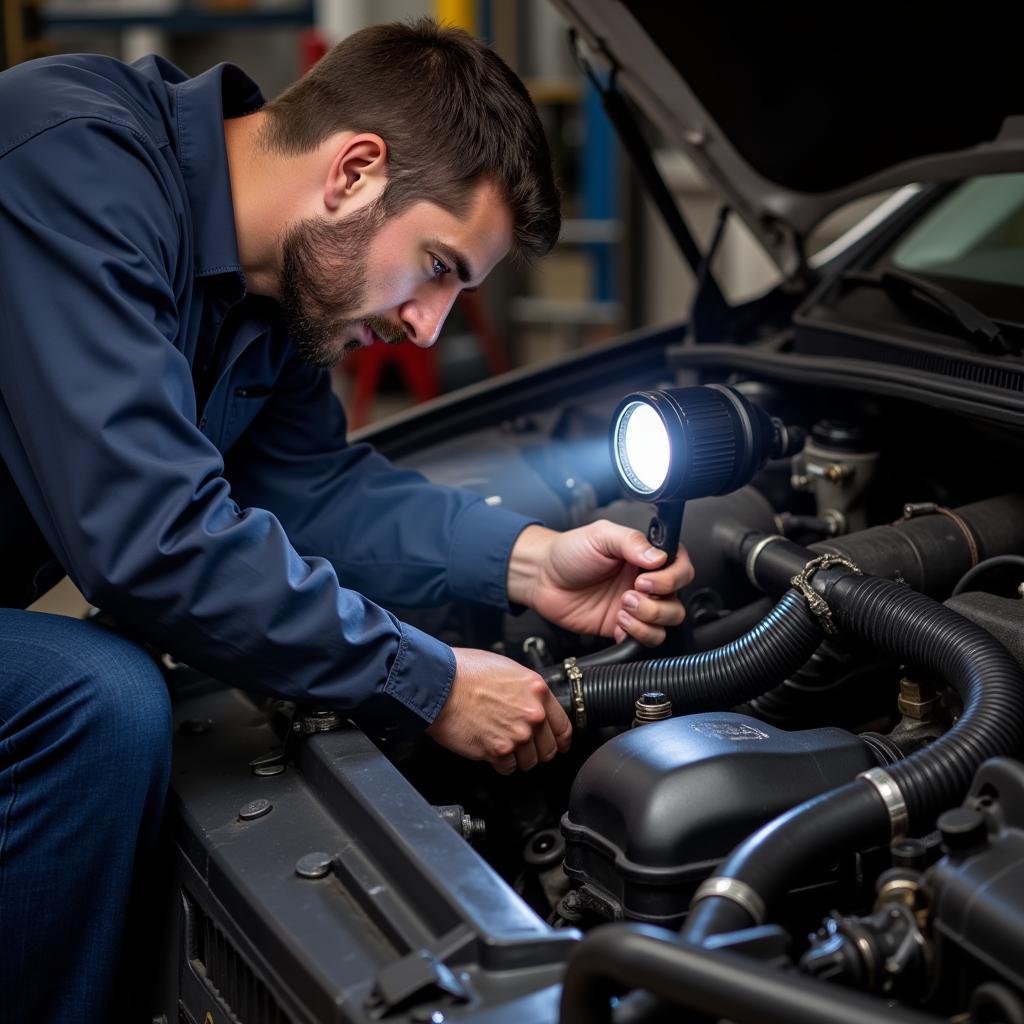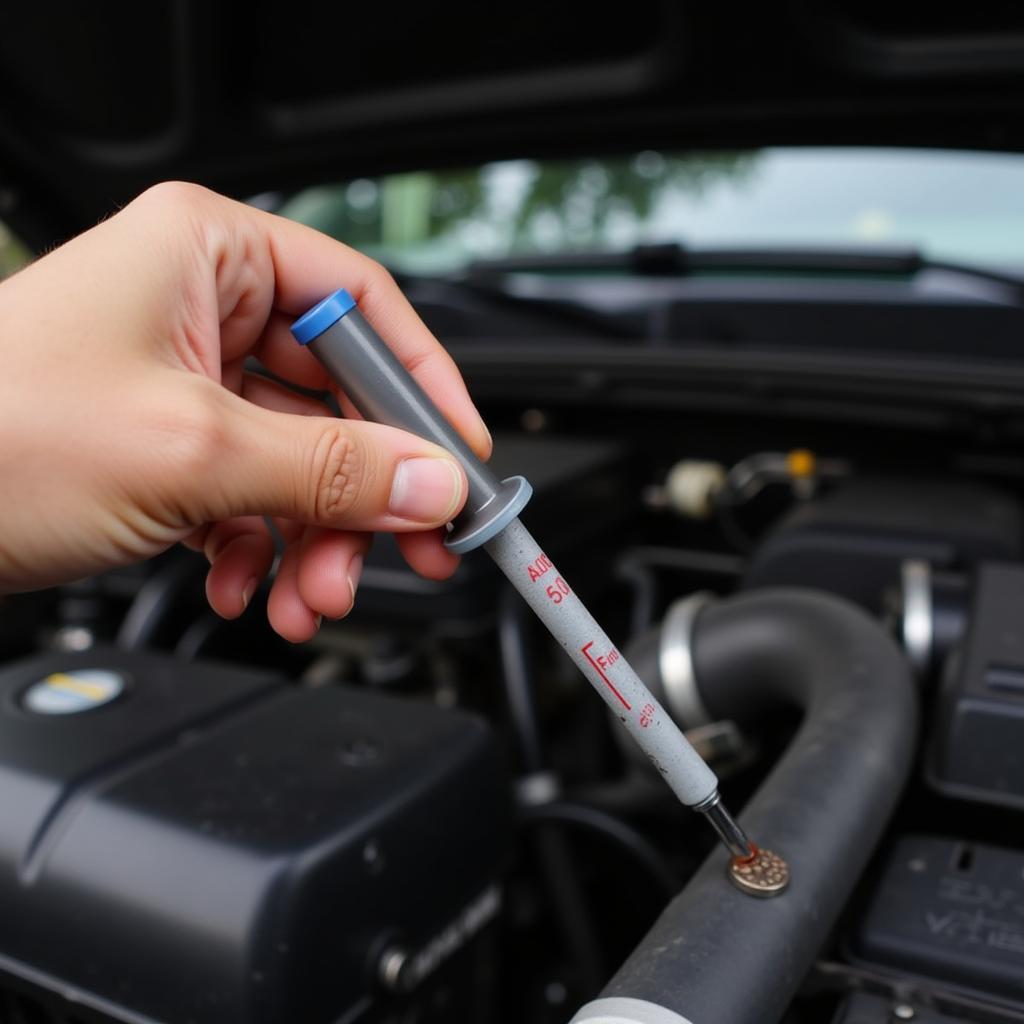Overheating is a common and serious car problem, often caused by car radiator problems. Ignoring this issue can lead to catastrophic engine damage, costing you significant time and money. This guide will help you understand, diagnose, and address car radiator problems that lead to overheating, empowering you to keep your vehicle running smoothly.
Understanding why your car overheats when you have radiator problems is crucial. The radiator is a vital part of your car’s cooling system, responsible for dissipating heat from the engine coolant. When the radiator malfunctions, this heat isn’t effectively removed, causing the engine temperature to rise and potentially overheat. A variety of issues can affect the radiator, ranging from simple leaks to more complex internal blockages. Similar to radiator problems car overheating, other cooling system issues can also contribute to overheating.
Common Car Radiator Problems Leading to Overheating
Several issues can cause your car radiator to malfunction and lead to overheating. Identifying the specific problem is the first step towards a solution.
Leaks in the Radiator
Leaks are a frequent culprit in radiator-related overheating. These leaks can occur in the radiator itself, the hoses connecting it to the engine, or the radiator cap. A small leak might initially seem insignificant, but it can quickly escalate, leading to a significant loss of coolant and subsequent overheating.
Clogged Radiator
A clogged radiator restricts coolant flow, preventing effective heat dissipation. This blockage can be caused by debris, rust, or sediment buildup inside the radiator. Regular flushing and maintenance can help prevent this issue.
Faulty Radiator Fan
The radiator fan plays a crucial role in drawing air through the radiator, helping to cool the coolant. A malfunctioning fan, whether due to a faulty motor, relay, or sensor, can significantly reduce cooling efficiency, leading to overheating, especially at low speeds or idle.
Low Coolant Level
Low coolant levels are a common cause of overheating. Whether due to a leak or simply neglecting to top up the coolant, insufficient coolant means less fluid to absorb and dissipate heat, leading to a rapid rise in engine temperature.
 Car Overheating Due to Low Coolant Level
Car Overheating Due to Low Coolant Level
Diagnosing Car Radiator Problems
Diagnosing the cause of your overheating issue requires a systematic approach. Here’s a step-by-step guide:
- Check the Coolant Level: Inspect the coolant reservoir when the engine is cold. If the level is low, this could be the primary cause of overheating.
- Inspect for Leaks: Look for any signs of coolant leaks around the radiator, hoses, and radiator cap. Look for puddles under the car or a sweet smell indicating coolant leakage. This aligns with common basic car problems and solutions.
- Examine the Radiator Fan: With the engine running, observe the radiator fan. It should cycle on and off as needed to regulate temperature. If the fan isn’t working, it could be the source of the problem. Diagnosing this is similar to how you would diagnose car water pump problem.
- Check for Blockages: A professional mechanic can perform a pressure test to check for internal blockages in the radiator.
 Mechanic Inspecting Radiator Hoses for Leaks
Mechanic Inspecting Radiator Hoses for Leaks
Solutions for Car Radiator Problems
Once you’ve identified the problem, you can take appropriate action. Some solutions you can handle yourself, while others require professional assistance.
Topping Off Coolant
If the coolant level is low, top it off with the correct coolant type recommended for your vehicle.
Repairing Leaks
Minor leaks in hoses might be temporarily fixed with sealant tape, but proper repair or replacement is crucial. Radiator leaks often require professional repair or replacement.
Flushing the Radiator
Flushing the radiator can remove debris and sediment buildup. You can do this yourself or have a mechanic perform the service.
Replacing the Radiator Fan
A faulty radiator fan usually requires replacement. This can be a DIY project for experienced individuals or a straightforward task for a mechanic. You can find more information in the article on car problems with a hummer.
Expert Insight
John Smith, a seasoned automotive engineer with over 20 years of experience, emphasizes the importance of regular radiator maintenance: “Preventive maintenance, such as regular coolant flushes and inspections, can significantly extend the life of your radiator and prevent costly repairs down the line.” He further advises, “Addressing overheating issues promptly is critical to avoid severe engine damage.” Another valuable tip from Smith: “Using the correct coolant type for your vehicle is essential for optimal cooling system performance.”
Conclusion
Car Radiator Problems Overheating can be a serious issue, but with proper understanding and diagnosis, you can take the necessary steps to address the problem effectively. Regular maintenance and prompt attention to warning signs can prevent costly repairs and ensure your vehicle stays on the road. If you need assistance, contact AutoTipPro at +1 (641) 206-8880 or visit our office at 500 N St Mary’s St, San Antonio, TX 78205, United States. We’re here to help you keep your car running smoothly. Problems similar to this can be found in other makes and models, like porsche cayman car problems.






Leave a Reply